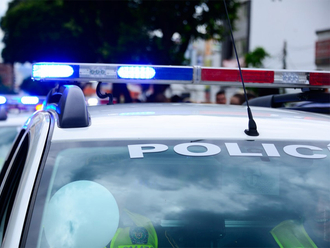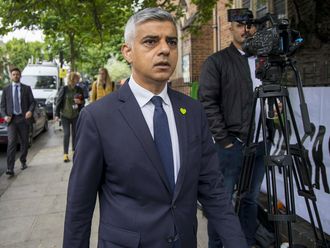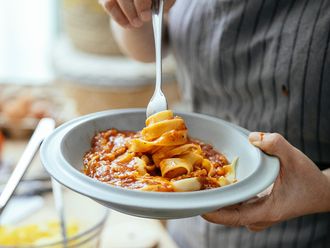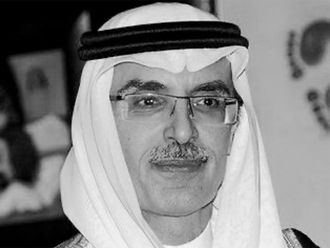Kiev: Ukrainian pilot Nadiya Savchenko has been branded by Moscow as a murderer but is viewed by many in her Western-friendly country as a symbol of doughty resistance to Russian aggression.
The 34-year-old army helicopter navigator has most prominently featured on global TV screens giving the one-finger salute to the southern Russian judge who found her guilty of complicity in the killing of two Moscow state television journalists.
The cropped-haired Iraq War veteran was handed a 22-year jail sentence on Tuesday.
An outraged Kiev and its Western allies view Savchenko as the victim of a Kremlin power game.
Both the European Union and the United States stand by Savchenko’s assertion that she was abducted by pro-Moscow eastern Ukrainian separatists, smuggled to Russia and then slapped with false charges.
The Belarussian Nobel Prize winning writer Svetlana Alexievich described her as the “Ukrainian Joan of Arc” — a 15th century French heroine who has been canonised as a Roman Catholic Saint — while The Economist weekly called Savchenko “a modern martyr”.
But Moscow argues she was the “spotter” who helped Ukrainian forces target a deadly mortar strike at the Russian journalists covering the war in June 2014.
These opposing views of the stridently defiant woman mirror the complexity of a 23-month conflict that has claimed the lives of nearly 9,200 people in the European Union’s backyard.
“When they accuse me of killing the Russian journalists — I would not do it out of principle,” she told a Moscow television reporter a few weeks after her mysterious and disputed June 2014 emergence in a Russian detention centre.
“I would never open fire on an unarmed person.”
Savchenko was born in Kiev when Ukraine was still part of the Soviet Union and went to her city district’s only Ukrainian-speaking school.
She joined the Ukrainian army and soon became the only female combat soldier among the 1,690 people Kiev sent to support the US-led military campaign in Iraq.
Savchenko described it as her first step to becoming a Su-24 attack aircraft pilot.
“I believe you can only become an officer after enlisting and taking part in live combat, getting the smell of gunpowder,” she told a Ukrainian television reporter in Iraq in 2005.
Savchenko then mounted a successful campaign to become one of the few women accepted to Ukraine’s highly-selective Air Force University in Kharkiv.
She graduated in 2009 and was soon posted to an army aviation regiment. But her primary duty involved navigating military helicopters — not piloting the fighter jets she had wished to fly.
This frustration and the separatist revolt that broke out two months after the February 2014 overthrow of Kiev’s Moscow-backed leaders seemed to prompt Savchenko to take what she describes as a “vacation” from her military duties and join the Aidar volunteer battalion.
Aidar’s fighters have been branded as “fascists” by Russia and condemned for resorting to torture of captives and other abuses by the UN High Commissioner for Human Rights.
What happened next is a matter of immense dispute.
The June 17 death of the two Russian journalists came with Savchenko in the immediate vicinity of the attack.
Savchenko says she had rushed to the scene because the insurgents had just hit “two armoured personnel carriers and a tank, and I went to see if anyone was wounded.”
She told a Moscow television reporter from inside her Russian detention centre in July 2014 that she was then immediately “ambushed” by the insurgents.
“This really was a kidnapping,” she said.
But prosecutors argue that Savchenko was detained only after she had crossed into Russia of her own free will.
Her defence team points to Savchenko’s mobile phone billing records that purportedly show her having been captured and moved to the region’s central city of Lugansk at least an hour before the Russians were killed.
Savchenko is viewed by her supporters as a symbol of resistance against what Kiev calls Moscow bid to destabilise the pro-Western leadership by unleashing the eastern revolt — a charge Russia denies.
But she told the Russian TV crew in July 2014 that she wished for a quick end to the conflict and believed that the remaining separatists “should not be killed”.
Savchenko was elected to parliament in absentia on the nationalist ticket of former prime minister Yulia Tymoshenko in October 2014 and given her country’s highest honour by President Petro Poroshenko in March 2015.
Poroshenko said on March 9 that he was ready to swap Savchenko for Russians captured in the east.











